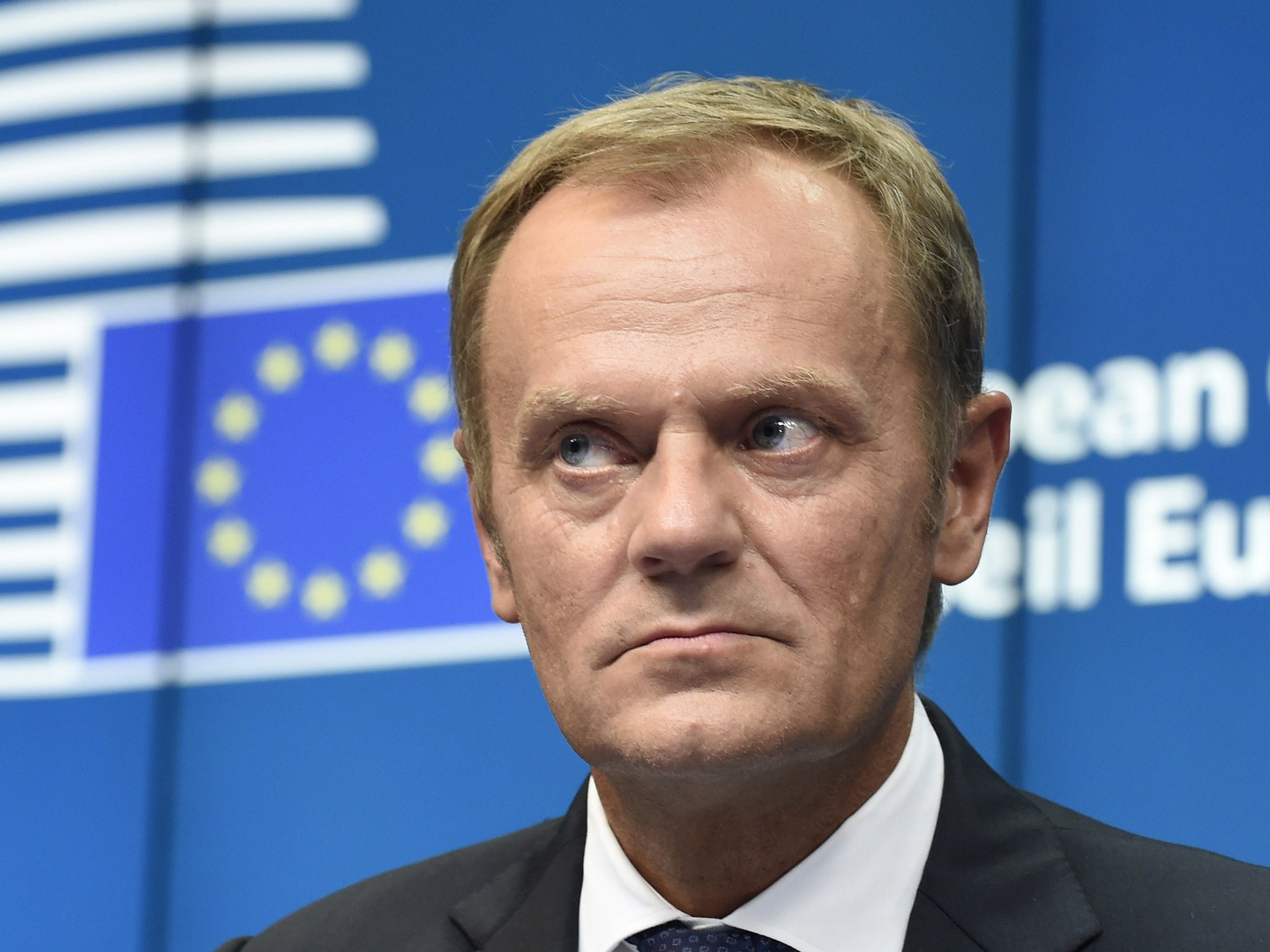Refugee crisis: EU summit in Brussels fails to make decisive headway
EU’s 28 leaders merely agreed a statement saying they were determined to regain control over their external frontiers

Your support helps us to tell the story
From reproductive rights to climate change to Big Tech, The Independent is on the ground when the story is developing. Whether it's investigating the financials of Elon Musk's pro-Trump PAC or producing our latest documentary, 'The A Word', which shines a light on the American women fighting for reproductive rights, we know how important it is to parse out the facts from the messaging.
At such a critical moment in US history, we need reporters on the ground. Your donation allows us to keep sending journalists to speak to both sides of the story.
The Independent is trusted by Americans across the entire political spectrum. And unlike many other quality news outlets, we choose not to lock Americans out of our reporting and analysis with paywalls. We believe quality journalism should be available to everyone, paid for by those who can afford it.
Your support makes all the difference.European Union leaders have departed Brussels after another summit that failed to make decisive headway in resolving the refugee crisis that has plunged the EU into chaos and rancour.
On the day when the United Nations said global refugee flows would reach an all-time record, having likely “far surpassed” 60 million this year, the EU’s 28 leaders merely agreed a statement saying they were determined to regain control over their external frontier through stricter checks and other border management actions next year.
The EU’s Luxembourg presidency circulated a report for the summit on “managing migration flows” that revealed several “shortcomings” this year, including the much-vaunted refugee relocation plan: only 184 persons have been relocated out of a total goal of 160,000.
EU Council president Donald Tusk, who chaired the summit, insisted the elements of a broad strategy were there. “But there is still a delivery deficit when it comes to hot spots, relocation, resettlement and returns. Above all, we are failing to protect our external borders,” he said.

The leaders set themselves a six-month deadline to decide on plans for a 1,500-strong border and coast guard that could be sent to EU countries unable to manage their frontiers. Aimed mainly at countries such as Greece and Italy, where most of the Syrian refugees have landed this year, the planned rapid-reaction border guard would ensure asylum-seekers go through reception facilities and register before a decision is taken on whether they can stay in Europe.
Although the leaders agreed that they had to regain control over their external borders, the plan for an EU agency – which could send guards, ships or planes to a country over the wishes of its government – is extremely contentious, raising fundamental questions about national sovereignty.
Most EU members, including Germany, France and Sweden, say tighter controls are needed, especially along Greece’s sea border with Turkey. “The external borders must be protected. I’m entirely in agreement with the proposal from the European Commission on a border guard,” said French President François Hollande.
But some, including Hungary, Poland and Greece, are fiercely opposed. Asked whether border controls could be imposed against the will of a member state, Lithuanian President Dalia Grybauskaite said, “No, never!”
One tangible decision to emerge from the summit was an agreement for another special Turkey summit on 18 and 19 February to discuss last month’s €3bn (£2.2bn) deal with Ankara aimed at preventing Syrians leaving Turkish refugee camps.
Join our commenting forum
Join thought-provoking conversations, follow other Independent readers and see their replies
Comments